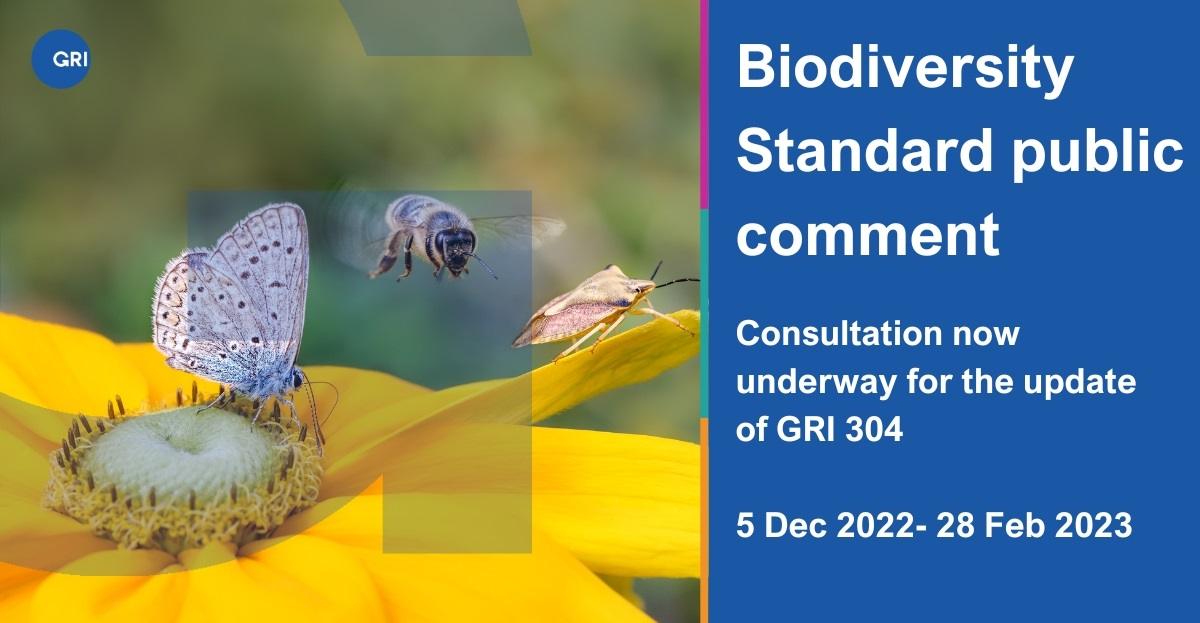GRI Unveils Biodiversity Reporting Standard
The Global Reporting Initiative (GRI), one of the leading organizations promoting standardized ESG reporting, announced today the publication of its new Biodiversity Standard, aimed at enabling companies to publicly disclose on their most significant biodiversity impacts, and how they are managed, and to improve the comparability and quality of biodiversity-related reporting for stakeholders.
GRI Sustainability Reporting Standards are one of the most commonly accepted global standards for sustainability reporting by companies, developed to enable consistent reporting across companies and industries, providing clearer communication to stakeholders regarding sustainability matters. The standards are available for reporting across a wide range of ESG-related topics, ranging from anti-corruption practices to biodiversity and emissions.
The new standard will likely influence emerging voluntary and mandatory disclosure systems globally, with environmental disclosure platform CDP recently announcing plans to use the standard, once published, to inform its own disclosure system, and given GRI’s participation in the Taskforce on Nature-related Financial Disclosures’ (TNFD) to deliver a framework for organizations to report and act on evolving nature-related risks.
Judy Kuszewski, Chair of the Global Sustainability Standards Board (GSSB), the independent entity that sets the GRI Standards, said:
“It is abundantly clear that biodiversity is under siege, with human activity the leading cause. The affects of biodiversity loss are directly undermining the sustainable development agenda and, if it continues unabated, will have disastrous consequences – on the environment, the economy and people.”
GRI’s proposed standard significantly updates its existing biodiversity reporting guidelines, most notably facilitating reporting of impacts across the supply chain, requiring information on an organization’s activities and its suppliers’ activities with the most significant impacts on biodiversity, as well as recommendations to provide information on the downstream value chain.
Additional revisions include helping companies prioritize attention on their most significant impacts, the addition of new disclosures to connect with the drivers of biodiversity loss, including climate change, pollution, and overexploitation of resources, the introduction of requirements for biodiversity-related human rights impacts, and an emphasis on location-specific data for greater transparency about where biodiversity impacts take place.
The GRI’s Biodiversity Standard exposure draft is now available for public commentary, with the comment period available until the end of February 2023.
In June 2021, the GRI announced that it had received funding for the development of the updated standard from a series of companies and organizations including professional services firm KPMG, environmental services company Ambipar and philanthropic organization One Earth, along with a private individual donation. In today’s statement, the GRI added, “GRI thanks KPMG, Ambipar and One Earth for their funding support during the development phase for the update to GRI 304.”
Click here to access the new proposed biodiversity reporting standard and public comment questionnaire.





